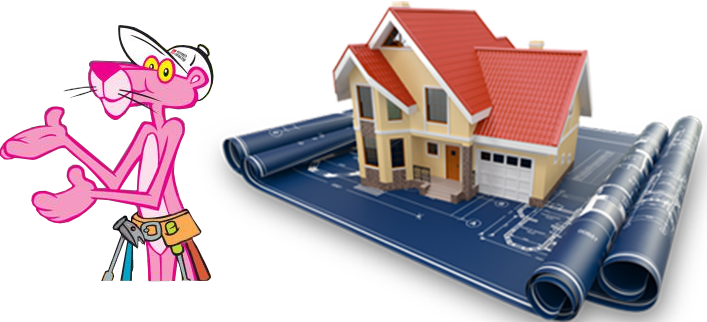When Huntsville homeowners think about roof replacement, energy efficiency often comes to mind first. While a more efficient roof can certainly lower your electricity bills (especially during our sweltering Alabama summers), the environmental impact of your roofing choices extends far beyond just energy savings.
At 1 Stop Roofing and Exteriors, we believe in helping our customers make informed decisions that benefit both their homes and the planet. Let’s explore how your roofing choices affect the environment in ways you might not have considered.
The Full Environmental Lifecycle of Roofing Materials
Every roofing material has what experts call an “environmental footprint” that includes:
- Raw material extraction: The environmental cost of mining or harvesting materials
- Manufacturing processes: Energy used and emissions created during production
- Transportation: Fuel consumed moving materials from factory to your home
- Lifespan: How long the material lasts before needing replacement
- End-of-life disposal: Whether materials can be recycled or must go to landfills
Asphalt Shingles: The Popular Choice
Asphalt shingles remain the most common residential roofing material in Huntsville, and for good reason – they’re cost-effective and perform well in our climate. However, from an environmental perspective:
- They’re petroleum-based products, making them less sustainable than some alternatives
- Traditional asphalt shingles have a relatively short lifespan (15-30 years)
- They contribute significantly to construction waste in landfills (approximately 11 million tons annually in the U.S.)
The good news? Modern “cool” asphalt shingles with reflective granules can significantly reduce your home’s energy consumption compared to standard shingles. Additionally, some manufacturers are now incorporating recycled content into their products.
Metal Roofing: The Long-Term Environmentalist
Metal roofing has gained popularity in Huntsville in recent years, and its environmental benefits include:
- Longevity: A properly installed metal roof can last 40-70 years – two to three times longer than asphalt
- Recyclability: Most metal roofing is made with 25-95% recycled content and is 100% recyclable at the end of its life
- Energy efficiency: Metal roofs with reflective coatings can reduce cooling costs by up to 25% in our hot Alabama climate
- Rainwater harvesting: Metal roofs are ideal for collecting clean rainwater for gardens and landscape use
While the initial investment is higher than asphalt, the environmental benefits over time make metal roofing worth considering for environmentally conscious homeowners.
Beyond Material: Installation Practices Matter
Even the most eco-friendly roofing material can have a negative environmental impact if installed improperly. At 1 Stop Roofing and Exteriors, we prioritize:
- Proper disposal: Responsibly removing and recycling old roofing materials when possible
- Efficient installation: Minimizing waste through precise measurements and careful planning
- Proper insulation: Ensuring your attic has adequate insulation to maximize your roof’s energy efficiency
- Proper ventilation: Installing appropriate ventilation systems that extend roof life and reduce energy costs
Urban Heat Island Effect: A Local Concern
Huntsville, like many growing cities, experiences what scientists call the “urban heat island effect” – where developed areas become significantly warmer than surrounding rural areas. This effect is particularly noticeable during our already hot summers.
Roofing choices across the city contribute significantly to this phenomenon:
- Dark-colored roofing absorbs heat, raising local temperatures
- Higher temperatures lead to increased air conditioning use, contributing to energy consumption and pollution
- Elevated temperatures accelerate the formation of ground-level ozone, affecting air quality
By choosing lighter-colored or reflective roofing materials, Huntsville homeowners can collectively help reduce this effect, creating a more comfortable and healthier city environment.
Making the Right Choice for Your Home and Environment
When considering your next roof replacement, here are some environmentally friendly options that work well in Huntsville’s climate:
- Cool roof asphalt shingles: Energy Star-rated shingles with reflective granules
- Metal roofing: Long-lasting and recyclable with excellent reflective properties
- Recycled content shingles: Made from rubber, plastic, or wood fiber waste
- Slate or clay tile: Natural materials with extremely long lifespans (though weight considerations apply)
Remember that the most environmentally friendly roof is one that:
- Is properly installed by qualified professionals
- Receives regular maintenance to maximize its lifespan
- Works in harmony with proper attic insulation and ventilation
How 1 Stop Roofing and Exteriors Can Help
As your local roofing experts in Huntsville, we understand both the specific challenges of our climate and the increasing desire of homeowners to make environmentally responsible choices.
During your free consultation, we’ll discuss:
- Materials that meet your budget while minimizing environmental impact
- Energy-efficient options specifically suited to your home’s design and orientation
- Proper disposal and potential recycling of your existing roofing materials
- Complementary systems like improved attic insulation that enhance environmental benefits
Choosing an environmentally friendly roof doesn’t mean sacrificing performance or breaking your budget. Many eco-friendly options actually save money in the long run through energy savings and extended lifespan.














